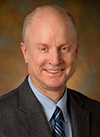I have completed an advance directive – a health care power of attorney. My wife is my primary agent. I am the primary agent on her advance directive. We have talked about our values, wishes, and preferences for potential care issues and choices.
When we completed our health care powers of attorney, we took a legalistic “transactional” approach to the documents. We then used a conversation-based approach to inform each other about our values, wishes, and preferences.
 Ben Adams, Marquette 1985, is president of the Wisconsin Chapter of the National Academy of Elder Law Attorneys and an advisor to the State Bar Elder Law Section board. He is a partner in Adams & Woodrow S.C., Neenah.
Ben Adams, Marquette 1985, is president of the Wisconsin Chapter of the National Academy of Elder Law Attorneys and an advisor to the State Bar Elder Law Section board. He is a partner in Adams & Woodrow S.C., Neenah.
Charlie Sabatino, an attorney with the ABA Commission on Law and Aging, has analyzed advance directives law over the past 30 years. The law’s focus has been on legal formalities for completing documents, with many required phrases and limitations on surrogate authority. According to Sabatino, the results show that: 1) most advance directives aren’t worth the paper on which they are written; 2) the real legal task of advance care planning is appointing and informing a health-care agent; 3) ambivalence is our middle name; 4) advance care planning has stages; 5) the best trait in a health-care agent: a drive to research relentlessly; 6) an advance directive does not equal a plan of care; 7) good advance care planning requires more than just better education – it requires system change; and 8) lawyers will continue to have an important, though changed, role in advance care planning.
Sabatino argues for a communications-based approach between principals and agents to create effective decision-making based on shared values and knowledge. He also notes that health-care delivery in the United States is extremely complicated and fragmented. Advance directives cannot provide cookbook directions. They cannot change the fact that dying is complicated. Directives cannot be a substitute for discussion. (See Charlie Sabatino’s article.)
I agree completely with Sabatino and with William H. Colby regarding advantages of the discussion-based approach to advance directives. Colby represented the family of Nancy Cruzan. He’s the author of Long Goodbye: The Deaths of Nancy Cruzan and Unplugged: Reclaiming Our Right to Die in America. Colby describes his approach to medical decision-making and the intersection of law and medical technology:
“First, I filled out a legal document, a one-page power of attorney for health care. This document states that my wife (or the listed alternates) will make medical decisions for me if I cannot.
WebXtra
<iframe src="//www.youtube.com/embed/-uKMxyf_xcg?rel=0&autohide=1" width="325" height="250" frameborder="0" allowfullscreen></iframe>
Ben Adams urges everyone to complete a health care power of attorney.
“Second, I’ve armed my wife to act as my advocate if the time comes. We talked about Nancy Cruzan and Alzheimer’s. She knows that I believe the purpose of medical technology is to serve as a bridge to recovery so that I can live life. If I cannot, I want the technology stopped.
“Third, I’ve talked to my siblings, my mom, and others who might be in that room when decisions are made about me. Health-care workers who deal with the dying all can tell a story about the somewhat-estranged adult child who flies in to ‘save’ mom. To avoid conflict later, talk now.” (See “5 Minutes That Can Spare a Family Years of Pain.”)
I stand with Charlie and Bill. Complete a directive, and talk to each other … now.
